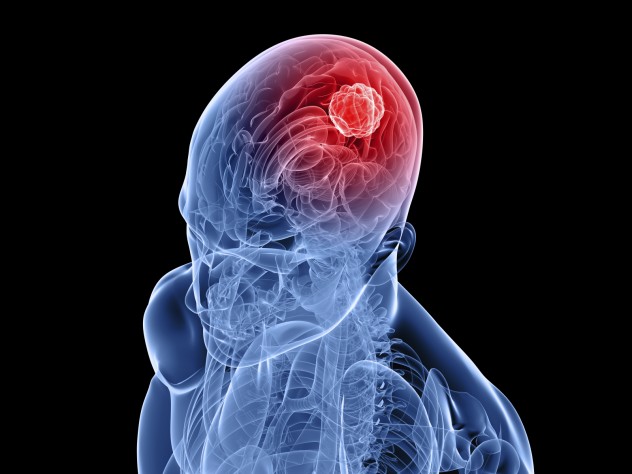 Movies and TV
Movies and TV  Movies and TV
Movies and TV  History
History 10 Dirty Government Secrets Revealed by Declassified Files
 Weird Stuff
Weird Stuff 10 Wacky Conspiracy Theories You Will Need to Sit Down For
 Movies and TV
Movies and TV 10 Weird Ways That TV Shows Were Censored
 Our World
Our World 10 Places with Geological Features That Shouldn’t Exist
 Crime
Crime 10 Dark Details of the “Bodies in the Barrels” Murders
 Animals
Animals The Animal Kingdom’s 10 Greatest Dance Moves
 Movies and TV
Movies and TV 10 Box Office Bombs That We Should Have Predicted in 2025
 History
History 10 Extreme Laws That Tried to Engineer Society
 History
History 10 “Modern” Problems with Surprising Historical Analogs
 Movies and TV
Movies and TV 10 Movie Adaptations That Ruined Everything for Some Fans
 History
History 10 Dirty Government Secrets Revealed by Declassified Files
 Weird Stuff
Weird Stuff 10 Wacky Conspiracy Theories You Will Need to Sit Down For
Who's Behind Listverse?

Jamie Frater
Head Editor
Jamie founded Listverse due to an insatiable desire to share fascinating, obscure, and bizarre facts. He has been a guest speaker on numerous national radio and television stations and is a five time published author.
More About Us Movies and TV
Movies and TV 10 Weird Ways That TV Shows Were Censored
 Our World
Our World 10 Places with Geological Features That Shouldn’t Exist
 Crime
Crime 10 Dark Details of the “Bodies in the Barrels” Murders
 Animals
Animals The Animal Kingdom’s 10 Greatest Dance Moves
 Movies and TV
Movies and TV 10 Box Office Bombs That We Should Have Predicted in 2025
 History
History 10 Extreme Laws That Tried to Engineer Society
 History
History 10 “Modern” Problems with Surprising Historical Analogs
10 Common Human Behaviors Explained With Science
We do a lot of stuff every day that most of us never even think about. It’s too bad, because the explanations behind some of our most ordinary functions are quite fascinating.
10 Preferring Blondes

Though it’s mostly thought of as an old wives’ tale, the idea that gentlemen prefer blondes has biological grounding. The average woman with blonde hair is likely to have light skin, and skin with a paler pigment will more noticeably show physical defects. So a male prefers female mate with blonde hair because he can more easily see how healthy their offspring will be.
Of course, females seek out and avoid the same qualities in males, so perhaps the adage should be that everyone prefers blondes.
9 Cheating on a Partner

There are many reasons for someone to be unfaithful, but aside from the psychological, it’s possible some people literally have cheating in their DNA. Scientists have discovered a gene they call RS3 334, which is colloquially becoming known as the divorce gene. In tests where men and women were asked to fill out detailed (and anonymous) questionnaires about their marriage, couples where the male of the relationship had one or more of the RS3 334 genes scored low, both describing unhappiness and frequent domestic troubles. It is thought the gene affects the body’s vasopressin release, a chemical responsible for human bonding and monogamy.
8 Hugging

A lot of actions have become so ingrained in our culture that we don’t stop to think about why we are doing them. Hugging is essentially grabbing someone for no reason and with no outcomes or time limit planned. It seems strange when analyzed like that, but the reasons can be explained: close contact with another human, such as that experienced through hugging, is linked to the release of oxytocin, a hormone responsible for attachment and trust. It’s particularly useful in a relationship because the body contact occurring during sex releases oxcytocin with the aim of pairing the two together for raising offspring.
Don’t have anyone to cuddle? Don’t worry: your brain also releases oxytocin for things like meaningful eye contact, generous acts, and even patting a dog.
7 Disliking Strangers

The fear of strangers most children feel can be explained chemically. Oxytocin, the very same hormone that helps us bond with people we are close with, will also compel us to distrust people we don’t know.
There have been studies where participants inhale either oxytocin or a placebo and engage in group games with incentives to cooperate. When the groups featured people the participants already knew in some manner, the oxytocin caused their cooperation to rise—but when the groups consisted of strangers, it caused cooperation to fall. This is possibly left over from our ancestors, who needed to trust their own tribe while maintaining a healthy, defensive fear of other tribes they came across.
6 Scratching

We scratch all the time, but do we benefit from it at all? Scratching, or more accurately having an itch, is your body’s way of eliminating potentially harmful irritants or external objects. For example: an ant crawls onto your foot, so that area of your foot itches; you scratch that area and brush the ant away.
So it does help us, but why do we scratch so often? It’s not like we are covered in bugs all the time. Well, from an evolutionary standpoint it makes sense to scratch at anything that might be dangerous. While scratching something that wasn’t a threat is fine, not scratching something that is dangerous can lead to problems.
5 Arguing With Yourself

Someone offers you some chocolate. On one hand, you want to eat it, but on the other hand you are worried about weight gain. You make a deal: “I can have the chocolate now, as long as I promise to go the gym tomorrow.” Who exactly are you making that deal with? Technically, another person—at least according to your brain.
Its severity differs for everyone, but in many cases the same part of the brain that lights up when you think about others is also used to think about your future self. Subconsciously, you literally consider your future self a different person.
4 Laughing

Laughing is another activity that, when analyzed, seems absurd: a series of strange whooping noises following any number of things a human might find amusing. The areas of the brain that regulate laughing also regulate breathing and speech, so laughter is a very primal part of our functioning, so it surely has a purpose—but what?
Scientists think that when we laugh, we communicate a playful intent, indicating to others we trust them as a group member. This explains why laughing is contagious, and tests have shown that humans are far less likely to laugh when alone.
3 Getting Tired at Night

Everyone knows we sleep at night and wake in the day—but what exactly controls that? Most of us can’t make ourselves fall asleep or wake up at will, so what does?
The answer is melatonin. In the morning, exposure to light triggers a variety of chemical and hormone releases that get us going and assist us in our daily activities, and the same thing occurs for the opposite reason at night. Melatonin is a natural hormone that helps us sleep. It’s made by your pineal gland which only turns on when darkness occurs. Melatonin levels will stay fairly high for roughly 12 hours before exposure to light the next morning causes them to decrease.
The problem is that our pineal gland doesn’t understand artificial light, so being in dark rooms during the day or bright rooms at night drastically affects our body clock.
2 Aggression

Have you ever wondered why people “lose” their temper? Anger and aggression are perhaps the feelings we feel like we can least control, and sometimes we really do have no control at all. The amygdala is one area of the brain that has been shown to cause aggression, and damage to this area results in amplified aggressive behavior. The prefrontal cortex receives impulses from the amygdala and processes other information to decide if it should take action. Damage to the amygdala through physical trauma, tumor, or birth defect can result in those impulses becoming overwhelming, causing a urges and impulses towards aggressive acts the person might not morally agree with.
1 Pedophilic Urges

Pedophilia is of course not a common or acceptable trait for humans, but in some cases it can be explained physically. In 2000, a married man suddenly developed a severe pornography addiction and pedophilic thoughts accompanied by excruciating headaches. He sought help and it was soon discovered that the man had a tumor the size of an egg growing in his brain, pressing on his prefrontal cortex, which (as previously discussed) regulates urges. When the tumor was removed, the man’s behavior returned to normal and his unsavory sexual desires evaporated.
This kind of case is rare, but nevertheless possible. While we don’t normally experience such severe swings, it raises the question: do you control your actions or is it just all those chemicals?
Scott Friggin tweets.








